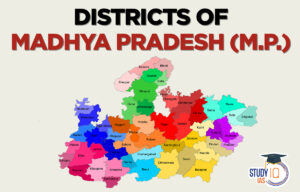Table of Contents
What is Right to Property?
The Right to Property was originally a fundamental right in India, protected by Article 19(1)(f) and Article 31 of the Constitution. These articles allowed citizens to acquire, hold, and dispose of property, and prohibited property deprivation without legal authority.
1st Amendment (1951)
The First Amendment in 1951 recognized the need for land reforms and social equity. It amended Articles 19(1)(f) and 31, allowing the government to impose restrictions on property rights for the public good.
44th Amendment (1978)
The 44th Amendment Act in 1978 was a major change, removing the fundamental right to property entirely. Articles 19(1)(f) and 31 were deleted on June 20, 1979. Instead, Article 300-A was added, defining the right to property as a legal right, not a fundamental right.
Current Status
Now, the Right to Property is governed by Article 300-A, which states that no one can be deprived of their property except by law. Unlike before, this right is not absolute and can be regulated.
Supreme Court Affirms Procedural Safeguards for Property Acquisition
The Supreme Court ruled that the state cannot acquire private property without following proper procedures, even if compensation is provided. This protection, interpreted as both a constitutional and human right, mandates the state to respect seven procedural rights before depriving someone of their property.
These include notification, hearing objections, providing a reasoned decision, proving public purpose, fair compensation, efficient process, and finalizing possession. The judgment, reinforcing Article 300A, emphasizes that eminent domain alone does not suffice for constitutional acquisition without established legal procedures. Check here the recent Supreme Court Judgement on Private Property.
Right to Property Article in Indian Constitution
In the Indian Constitution, Article 300A guarantees the Right to Property to people. This article falls in Part XII of the Constitution. It states that no person can be deprived of his/her property save by the authority of law. However, this was not the case when the original Constitution was drafted.
| Article 300A |
| 300A. Persons not to be deprived of property save by authority of law No person shall be deprived of his property save by the authority of law. The Constitution (Forty-Fourth Amendment) Act, 1978, repealed Article 19 (1) (f) and also took out Article 31(1) has been taken out of Part III, and made a separate Article 300A in Chapter IV of Part XII. This amendment may have taken away the scope of the speedy remedy under Article 32 for the violation of the Right to Property because it is no longer a Fundamental Right. Making it a legal right under the Constitution serves two purposes: Firstly, it gives emphasis to the value of socialism included in the preamble and secondly, in doing so, it conforms to the doctrine of basic structure of the Constitution |
Is the Right to Property a Fundamental Right?
Even before 1949, the Government of India Act of 1935 had provisions concerning the Right to Property. Under this law, the property of zamindars and peasants was protected. The government could take away the property only for public purposes.
In the original constitution, the Right to Property was a Fundamental Right under Article 19(1)(f) and Article 31. However, the status was changed with an amendment to the constitution.
Under the First Amendment to the Indian Constitution, Article 31A and Article 31B which made legislation granting zamindars possession over their property unchallengeable in the court of law.
Why Right to Property Removed from Fundamental Rights?
The main reason for the removal of the right to property from the fundamental rights was a large number of litigations in courts related to the land acquisition of government. This was acting as an impediment to the development process, which included infrastructure development and agriculture reforms.
This was considered necessary to meet the socialistic goals of the government. Also, it was suggested that the interests of the public and public welfare should come before private interests. Nevertheless, it did not mean that the state could take away private property in any manner. It is in the same spirit that the Supreme Court of India has, in several cases, rejected the doctrine of adverse possession to take away the property of citizens. Although some amendments were made thereafter, the next significant amendment was made in 1978.
Right to Property Amendment
In the year 1978, the 44th Amendment Act was enacted by the Indian Parliament. Among the many changes that it brought forth, one of the most significant was the removal of the Right to Property from Part III of the Constitution. It must be noted that this amendment act did not affect the right of minority institutions to possess property under Article 30.
Right to Property is a Legal Right
Article 300A of the Constitution makes the right to property a legal right. It allows the state to acquire property under two conditions
- The acquisition should be for a public purpose.
- It should provide for payment of compensation to the owner.
The present status of the Right to Property is that it is a legal right and not a constitutional right. This means that it can be regulated, abridged, or curtailed by law without the constitutional amendment. It also means that in the event of a violation of this right, an individual or a party cannot approach the Supreme Court for the issuance of a Writs. However, one can always approach the High Court and file a petition.
Although the right to property is still immune from executive action, it is not so from legislative action. In other words, if the Parliament passes a law to this effect, the acquisition of private property by the state is legally justified. Also, there is no guaranteed right to compensation in the event of the state acquiring the property under the legislation passed by the Parliament.
Right to Property Supreme Court Cases
The following judicial cases highlight how the interpretation of the Right to Property done by the Supreme Court (SC) has evolved over some time.
A K Gopalan v. State of Madras (1950)
In this case, the Madras High Court addressed the balance between the right to property and the state’s regulatory power. The court upheld the Madras Maintenance of Public Order Act, 1949, allowing the state to seize property for public order.
Kesavananda Bharati v. State of Kerala (1973)
Known for establishing the “basic structure doctrine,” this Supreme Court case stated that while Parliament can amend the Constitution, it cannot change its fundamental structure. This ruling indirectly influenced the later amendment that redefined the right to property as a legal right.
Minerva Mills Ltd. v. Union of India (1980)
The Supreme Court struck down parts of the 42nd Amendment Act, 1976, which gave Parliament excessive power to amend the Constitution. While the court upheld the removal of the fundamental right to property, it clarified that the right remains a constitutional right.
Jilubhai Nanbhai Khachar v. State of Gujarat (1995)
In this case, the Supreme Court ruled that the Right to Property is not part of the Basic Structure Doctrine of the Constitution.
Right to Property UPSC
The Right to Property guarantees a person’s right to possess private property unless it is explicitly barred by law. In the Indian Constitution, Article 300A guarantees the Right to Property to people. It is not a fundamental right, but rather a legal right. Prior to the 44th Amendment Act, the right to property was a fundamental right. Difficulty faced by the government to acquire land for developmental works led the Parliament to change the status quo. Since then, it has remained a legal right. However, highlighting its importance, the Supreme Court in various instances has suggested that, it is a human right.


 Consolidated Fund of India, Meaning and ...
Consolidated Fund of India, Meaning and ...
 Districts of MP List, Name, Importance, ...
Districts of MP List, Name, Importance, ...
 Admiralty (Jurisdiction and Settlement o...
Admiralty (Jurisdiction and Settlement o...





















